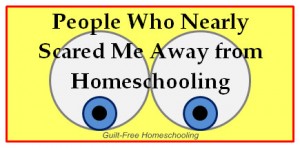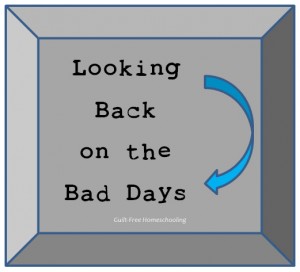Homeschooling is to public schooling as homemaking is to hotel management.
Homes and hotels have several things in common: beds to make, toilets to clean, windows to wash, and floors to vacuum. But the comparisons usually stop there. Homes are filled with families, the same people day after day, year after year, and the “chores” are motivated by familial love. Hotel patrons stay there for the convenience, the hotel employees are usually in it until something better comes along, and the hotel owners are in it for the money.
Homeschools and public or private schools also have several things in common: students learning, teachers teaching, books, maps, and pencils. But, once again, the comparisons usually stop there. Homeschools are filled with families, the same people day after day, year after year, and the dedication is motivated by familial love. Public and private schools are filled with transient students who go home nights, weekends, and holidays. The arrangement is convenient for the parents (who can now fill their days with other occupations), the schools’ employees are often in it until something better comes along, and the schools’ owners are in it for the money (let’s not kid ourselves — when schools are not financially self-supporting, they close… or merge with more profitable schools).
The methods employed and the motivations used in commercial enterprises and in family homes are entirely different from each other, providing drastically different results. Public institutions are essentially emotionless corporations concerned with financial statements and product output, regardless of the personalities of their individual employees. We have all seen movies where a hotel’s concierge or members of the housekeeping staff become personally concerned for the well-being of a guest, but even when fact replaces fiction, it is a temporary relationship at best. The same comparison can be extended to classroom teachers and their students: there are some teachers who care deeply for some students, but again, these are limited, temporary relationships. Within the home and family, the relationship is permanent, day-by-day, and life-long. The motivations are not based solely on finances, and the daily methods of operating are rarely limited to strict efficiency. Families are not businesses and cannot be not run like businesses without serious negative consequences.
What it all comes down to (in my mind) is “Who’s in charge here?” Do you want to yield to the all-knowing, all-seeing, all-powerful School System that will tell your children what it wants them to know, when it wants them to know it? Or do you want to be the most important influence in your children’s lives? Here I am again, being your faithful Resident Cynic, but remember that I had children in the government school system — and we left. I saw first-hand that no matter how inept I might be at teaching, I certainly could do no worse than our local public school had already done.
Do you feel that your home has become a place that your family members only visit frequently? Have you been providing transportation to sporting events, after-school clubs, and various other school activities, but feel you know little of what your children are actually learning? Are you in charge of scheduling events and delivering mail and clean laundry, but have very little influence over the truly important facets of your children’s lives? Then perhaps you would benefit from investigating homeschooling a little more fully — it may bring the same intimacy to your household that it brought to mine. Homeschooling allowed us to stop running a “hotel” and start becoming a family.




 Guilt-Free Homeschooling is the creation of Carolyn Morrison and her daughter, Jennifer Leonhard. After serious disappointments with public school, Carolyn spent the next 11 years homeschooling her two children, from elementary to high school graduation and college admission. Refusing to force new homeschooling families to re-invent the wheel, Carolyn and Jennifer now share their encouragement, support, tips, and tricks, filling their blog with "all the answers we were looking for as a new-to-homeschooling family" and making this website a valuable resource for parents, not just a daily journal. Guilt-Free Homeschooling -- Equipping Parents for Homeschooling Success!
Guilt-Free Homeschooling is the creation of Carolyn Morrison and her daughter, Jennifer Leonhard. After serious disappointments with public school, Carolyn spent the next 11 years homeschooling her two children, from elementary to high school graduation and college admission. Refusing to force new homeschooling families to re-invent the wheel, Carolyn and Jennifer now share their encouragement, support, tips, and tricks, filling their blog with "all the answers we were looking for as a new-to-homeschooling family" and making this website a valuable resource for parents, not just a daily journal. Guilt-Free Homeschooling -- Equipping Parents for Homeschooling Success!

Recent Comments